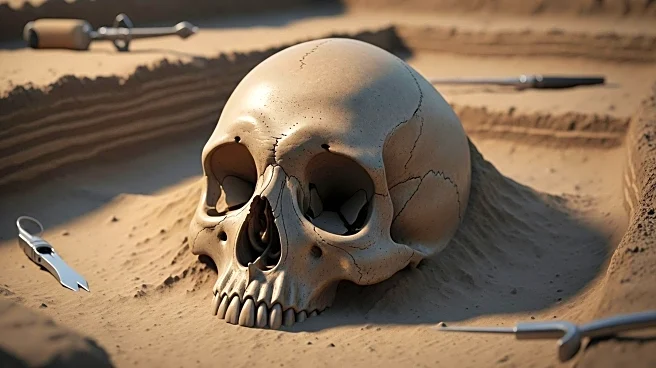What is the story about?
What's Happening?
A recent study published in the journal Science has sparked debate over the timeline of human evolution. Researchers digitally reconstructed a fossilized skull found in central China, suggesting that modern humans may have split from Neanderthals and other archaic humans over a million years ago. This challenges the previously accepted timeline of 500,000 to 700,000 years ago. The skull, discovered at an archaeological site along the Han River, exhibits a mix of primitive and modern traits, leading researchers to propose a new branch on the human evolutionary tree. However, some scientists remain skeptical, citing genetic evidence that supports a more recent divergence.
Why It's Important?
The findings from this study could significantly alter our understanding of human evolution, potentially doubling the timeline for when modern humans diverged from other species. This has implications for the study of human ancestry and the evolutionary processes that shaped our species. If validated, the research could prompt a reevaluation of existing theories and influence future studies in paleoanthropology. The debate highlights the complexity of tracing human evolution and the need for interdisciplinary approaches combining fossil evidence and genetic data.
Beyond the Headlines
The study raises questions about the reliability of fossil evidence in determining evolutionary timelines, emphasizing the importance of integrating genetic analysis. The discovery also underscores the challenges in reconstructing ancient specimens, as digital technology plays a crucial role in piecing together fragmented fossils. The ongoing debate reflects broader scientific discussions about the origins of Homo sapiens and the interconnectedness of ancient human species.















